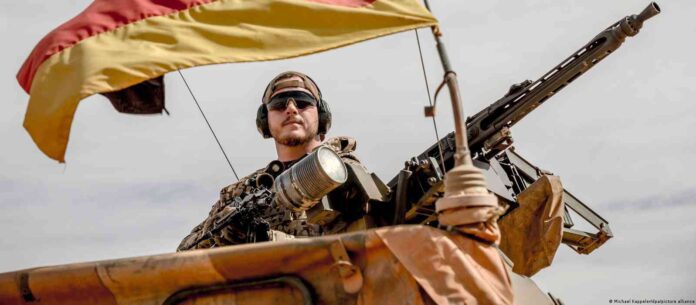The plan, as outlined in a paper published on Wednesday by the Ministry of Economic Cooperation and Development (BMZ), seeks to “orient itself on the needs of the people” in the region. The plan seeks to bring in more partners over a wider area.
“We are more successful when we act together with international partners than everyone on their own,” BMZ Minister Svenja Schulze said in a statement.
Germany has long been a significant player in stabilization and development efforts in the largely francophone Sahel.
With deeper engagement, Germany hopes to be a soft-power leader in a region it classifies as central to European security. As part of that commitment, the BMZ says that Schulze will put herself up as the chair of the Sahel Alliance
, a cooperation among Sahelian and Western countries and organizations. The Alliance, which takes credit for supporting nearly 1,200 projects totaling €26.5 billion ($29.3 billion), will choose the chair at a meeting next month in Mauritania.
Troops out, aid stays
The “Plus” announcement is a signal from the German government that it remains committed to the region even after German troops end their participation in a United Nations peacekeeping mission in Mali.
The UN first approved the multinational deployment in 2013, with the aim of smoothing the way to a peaceful and democratic transition of political power. Despite the presence of more than 12,000 troops and a separate French combat mission, jihadist violence has taken hold. A coup in 2021 ushered in leaders who oppose the UN mandate.
They have instead turned more towards Russia for support, welcoming in the paramilitary Wagner Group. Western countries have accused Wagner personnel of undermining security and killing civilians there. Malian and Russian officials say they are providing the same assistance as the UN peacekeepers.
The disagreement has bubbled up in the aftermath of the frenzied and failed end to security operations in Afghanistan in 2021. The combination of events led to a broad rethink of Germany’s military footprint abroad.
Prosperity there, security here
With the withdrawal of its contingent of as many as 1,100 troops, Germany is all but giving up on Mali, while maintaining a security presence in neighboring Niger. Unlike Mali, officials have said Niger’s government remains open to cooperating with German and other international actors. In April, Defense Minister Boris Pistorius and Development Minister Schulze made a joint trip to the region.
In addition to being one of the poorest areas of Africa, the Sahel and its neighbors are one of the youngest. Two-thirds of its population is under the age of 25, according to the UN. German officials, citing UN reporting, have said that extremist groups fill the vacuum left by an absence of jobs and economic opportunity. Young people, and especially young men, are drawn into violence less out of ideology than practicality. They need to earn a living.
“The BMZ strengthens economic prospects there and resilience against crises with new job possibilities such as in processing agricultural products, crop protection, carpentry work, or expanded infrastructure like water pumps.”

The dual-threat
Viewing extremism, and the underlying economic causes, as a regional threat, the “Plus” initiative seeks to stay one step ahead of its spread. Regional, rather than country-by-country, cooperation answers a long-time call from officials there.
“The crisis in the Sahel region is coming into the coastal countries,” Robert Dussey, Togo’s foreign minister, said at the Munich Security Conference in February, as he shared a stage with Schulze. “If, for example, you think for a minute to let us resolve the Sahel security question ourselves, it will be a mistake for everyone.”
Many people have fled the physical and economic insecurity. The UN Refugee Agency
counted nearly three million forcibly displaced people in 2022 and expects similar high levels this year “given the complex interplay between conflict, climate change, food insecurity and widespread lack of socioeconomic opportunities.”
That interplay also links the Sahel to Germany and Europe more broadly. While most displaced people remain somewhere in the region, some make the dangerous journey through northern Africa, across the Mediterranean, and into Europe. In 2022 alone, more than 2,400 people died at sea, a toll the International Organization for Migration acknowledges is an undercount.
Terrorism and refugees both put pressure on domestic politics and fuel nativist backlash. The “Plus” initiative is an effort to combat both, in the hope that improving lives and livelihoods there can stave off political tension here.
Edited by: Rina Goldenberg
https://p.dw.com/p/4QqZL














